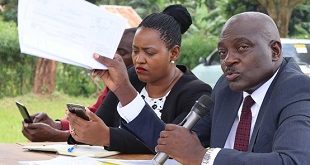
By Julius Odeke
Uganda is soon joining the rest of the other countries in celebrating the World Toilet Day that is in November 19, however, a report released by WaterAid says seven in ten women in sub-Saharan Africa have no access to a safe toilet, threatening their health and exposing them to shame, fear and even violence.
This means that on World Toilet Day, 297 million African women and girls lack safe and adequate sanitation and of those 107 million don’t have a toilet at all.
A survey commissioned by WaterAid of women living across five slums in Lagos, Nigeria, showed that one in five had first or second hand experience of verbal harassment and intimidation, or had been threatened or physically assaulted in the last year when going to the toilet. Anecdotal evidence from other African countries suggests that the scale of the problem may be much larger than this.
Barbara Frost, Chief Executive of WaterAid, said: “When women don’t have a safe, secure and private place to go to the toilet they are exposed and put in a vulnerable position and when they relieve themselves in the open they risk harassment. Women are reluctant to talk about it or complain, but the world cannot continue to ignore this.”
“Adequate sanitation, coupled with access to clean, safe water to drink, transforms lives, improving health, safety and productivity. Governments are urged to take action and invest in access to sanitation and water.”
Other studies from Uganda and Kenya show that such experiences of fear, indignity and violence appear to be common in Africa wherever women lack access to safe and adequate sanitation.
“Sometimes when I go I feel ashamed and go back without defecating. Sometimes I wait until dark to go there so no one can see me. I will be very concerned about Diani, my daughter, going to the bush because it is so far from here. At night it is very dangerous. People get killed. A woman and a boy were killed with knives. One woman I know of has been raped.”
Security came out as a recurring concern in the poll of women from slums in Lagos, with 67% of respondents saying they feel unsafe even using shared or community toilets in a public place. Poor hygiene has serious implications on health. Every day, over 1,000 African mothers lose a child to diarrhoeal diseases caused by a lack of adequate sanitation and clean water.
However, the Kampala Capital City Authority (KCCA) recently announced the scrapping of the user fee of Shs200 to people who will want to use the services of public toilets around the city.
The KCCA’s Executive Director, Jennifer Musisi Ssemakula said that her office has allocated about 100 million shillings for maintaining and repairing 11 public toilets in the city.
According to KCCA, this is to improve sanitation in the city. The pay-and-use toilets were adopted by the defunct KCC more than a decade ago.
 The Independent Uganda: You get the Truth we Pay the Price
The Independent Uganda: You get the Truth we Pay the Price


